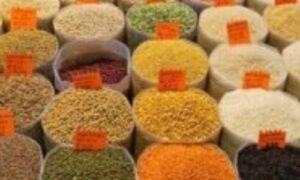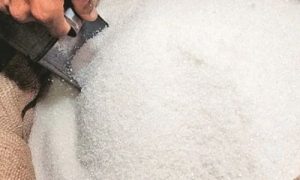Officials inspect pest infested maize crop farms in Madurai

Following complaints of pest infestation and poor maize crop growth in Peraiyur and T. Kallupatti, district agricultural officials and AC&RI professors inspected the farms and identified the fall armyworm as the cause of damage. To control the infestation, experts suggested thorough ploughing, neem cake application, light traps, and border crops like cowpea. They also recommended using specific insecticides at different growth stages.
Following complaints of pest infestation and poor growth of maize crops in areas surrounding Peraiyur and T. Kallupatti, district agricultural officials and professors from Agricultural College and Research Institute, AC&RI, inspected the farms and suggested them ways to prevent infestations in the future. During the inspection, officials found that the crops were attacked by an invasive pest named fall army worm (a native of United States of America) which was first identified in the State in 2018. K. Suresh, Associate Professor (Entolomogy), AC&RI, who was one among the team, said the worms which would start attacking the crop in the initial two leaves stage would slowly create pores in the leaves resembling gun shots. The symptoms of damage are scrapping of leaves, pin holes, small to medium elongated holes, parallel shot holes, and irregular shaped holes on leaves, loss of top portion of leaves, presence of chewed up frass material and faecal pellets in the leaf whorl, drooping of leave portion above the feeding area, and feeding on tassel. This process, which is termed as parallel short hole symptoms ends in defoliation.
In the case of grown crops, pests attack the corncob in all its stages – from milk stage to its adult stage. To address the pest issue from the beginning stage, farmers should ensure thorough ploughing to expose pupae to natural enemies and avian predators, Mr. Suresh said. Additionally, it can be done through applying neem cake at 250 kg/ha to reduce the adult emergence from pupae, using light trap at one/ha during night hours to monitor the adult moth activity in and around maize fields, avoiding repeated growing of maize crop, collecting and destructing egg masses and different stages of larvae, he noted. He suggested sowing border crops like cowpea, gingelly, sunflower and red gram in garden land condition or fodder sorghum in rainfed condition. Further, insecticides like Chlorantraniliprole, Flubendiamide, Azadirachtin, Emamectin benzoate, Spinetoram, Novaluraon, among others could be used according to the crop’s growth stages to prevent the infestation of the pest. Mr. Suresh said, since the pest was under continuous study, farmers, to avoid excessive damage to the crops, could receive inputs from agricultural officials and AC&RI institute.
To read more about Maize News continue reading Agriinsite.com
Source : The Hindu















